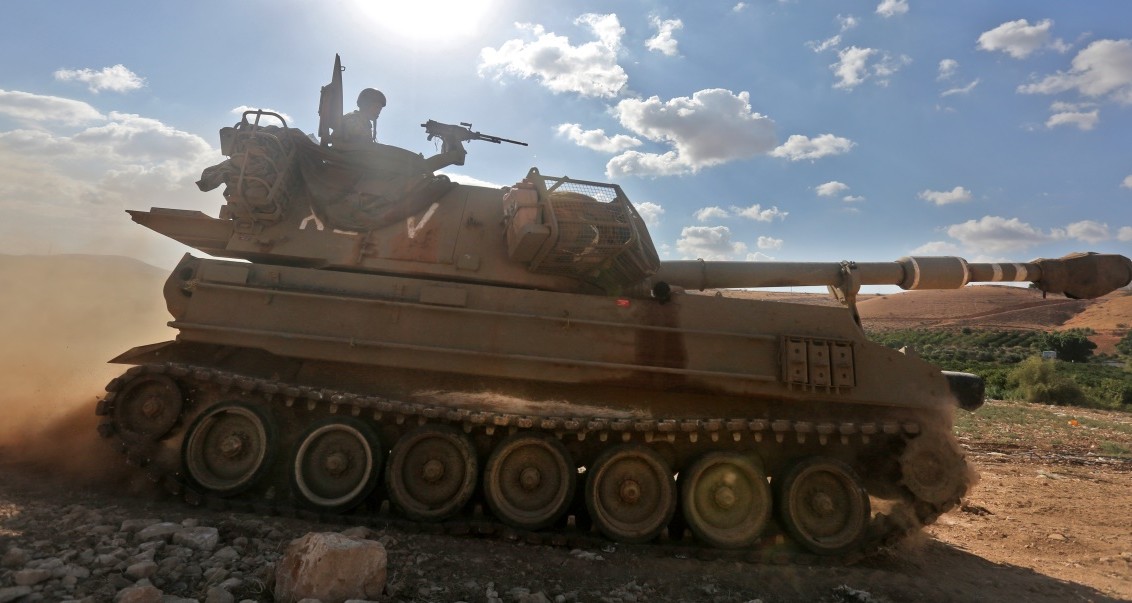
To Reassert U.S. İnfluence in Middle East, Work with State Actors
In the Middle East, the Trump administration wants to defeat Daesh in the short run and then focus on containing Tehran's regional hegemony
Share
As the Trump administration is working on a plan to reassert the U.S.'s influence in Syria and the rest of the Middle East, CIA Director Mike Pompeo traveled to Ankara to meet with Turkish officials. Where the new administration lands on the Raqqa operation will provide valuable insight into Washington's new roadmap.
It is no secret that there is an ongoing discussion within the U.S. government about allocating Turkey a bigger role in the war against Daesh in Syria and Iraq. Moving forward, a key sticking point will be the new administration's approach to the People's Protection Units (YPG), which could set the tone for Turkey-U.S. relations for the next couple of years. Turkish media reported last week that Turkish officials had presented Mr. Pompeo a plan involving the Free Syrian Army (FSA), Arab forces within the Syrian Democratic Forces (SDF) and Turkish and U.S. special forces.
Now the main question is how Washington will respond to a proposal that excludes YPG fighters but entails passage through Tal Abyad.
If the White House decides to work more closely with Turkey, a NATO ally that has remained on the frontline against Daesh, we will witness a clear decline in the YPG's standing in northern Syria. However, the administration will more likely seek to find a middle way, which would require them to come up with some creative solutions.
If Mr. Trump considers fighting "radical Islamism" and containing Iran to be the centerpieces of his Middle East policy, a comprehensive strategic partnership with Turkey is desperately needed. To be clear, the former Obama administration's idea of a strategic partnership, which involved working with both Turkey and the YPG, was not exactly popular among Turks.
In the Middle East, the Trump administration wants to defeat Daesh in the short run and then focus on containing Tehran's regional hegemony. Unlike Mr. Barack Obama, President Donald Trump sees Iran as "the biggest state sponsor of terrorism." The main problem is that the new administration's self-professed policy goals in the region could contradict campaign pledges against military interventions.
To make matters worse, the U.S. might have to get directly involved in the Middle East since it seems unlikely that the White House will be able to build a close relationship with Russian President Vladimir Putin. In recent weeks, several members of Mr. Trump's cabinet and congressional leaders came out against lifting Russia sanctions. At the same time, the administration has to find a way to work with the Kremlin in Ukraine, Eastern Europe, Eastern Mediterranean and the Middle East.
In order to contain Iran, it won't be sufficient to form an anti-Tehran bloc with Gulf nations and Israel. It is important to recall that Iran seized vast opportunities in the region and effectively became an empire between the U.S. invasion of Iraq and Mr. Obama's rapprochement with Tehran. Finally, any effort to contain Iran without negotiating terms with the Kremlin can lead to closer cooperation between Moscow and Tehran to fuel global tensions.
Over the next few months, the White House could seek to contain Iran through the creation of an anti-Tehran bloc in the region in two distinct ways:
First, President Trump could opt for "soft containment," which would involve economic sanctions and more proxy wars. Mobilizing supporters around a Shiite ideology, the Iranians have enough experience to resist both measures. In order to succeed, the administration would have to talk Europe, whose leaders aren't exactly getting along with Washington right now, out of lucrative deals with Iran.
Another important thing to keep in mind is that the Iranians will cause new problems in the Gulf in an effort to maintain their influence in Yemen, Syria and Iraq. Under the circumstances, missiles could presumably hit Jeddah or Riyadh and an insurrection could break out in Saudi Arabia's eastern province. The alternative to "soft containment" would be to use hard power instruments, which could have serious repercussions in the region and elsewhere.
At this time, President Trump is compelled to strike a healthy balance between his own priorities and the demands of traditional U.S. allies including Turkey, Egypt, Israel and Saudi Arabia. Moving forward, the White House should also prepare for Moscow's game-changing moves in the Middle East. The obvious way out of the current situation is to work with state actors at the expense of non-state actors including the YPG. Of course, the Trump administration could just backtrack on their priorities.
[Daily Sabah, February 14, 2017]
Tags »
Related Articles






